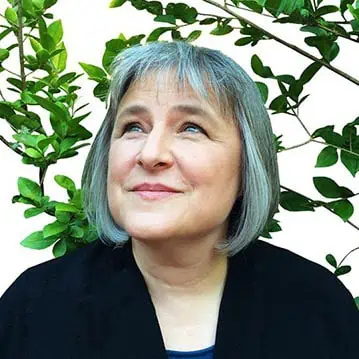Climate anxiety isn’t a disease. It’s a normal response to a world on fire
Climate anxiety is not primarily a disease. Instead it is an understandable reaction to the magnitude of the environmental problems that surround us.
What is climate anxiety?
Climate anxiety is a sub-set of eco-anxiety: a feeling of worry, nervousness or unease triggered by an awareness of the ecological threats facing the earth due to climate change.
How does this misunderstanding affect us? We receive invalidation or pathologization at every turn.
I have a dear friend who expressed deep, overwhelming anxiety about climate catastrophe and species extinction during a therapy session. The therapist shared that he thought she might be suffering from eco-anxiety, and recommended medication.
This is one reasonable response, I suppose… but does this framing as ‘disease’ really touch the indirect, often invisible impacts of our bodies? Sensitive, gentle bodies that are noticing and tracking the collapsing of our world’s ecosystem at an astounding rate?
I have many, many therapists and other healers as friends and I know there is a rising awareness and orientation toward non-pathologizing models for understanding anxiety.
But sadly, western psychology–especially over the past 30 years with the rise of the biochemical model–doesn’t have the best track record for fully honoring the spiritual, systemic and collective dimensions of health and well-being.
Climate anxiety is a sub-set of eco-anxiety: a feeling of worry, nervousness or unease triggered by an awareness of the ecological threats facing the earth due to climate change.
What are the symptoms we may not recognize as connected to the planetary crisis, such as depression, socio‐ethical paralysis, and loss of well‐being?
If you’d like to learn and practice a series of small, doable exercises for self-warmth and self-holding in these difficult times, you might like my 2020 webinar on Climate Anxiety.
How can we work with climate anxiety?
In order to really respond to climate anxiety, we need (a) enough time and space to be with our emotions and (b) enough constructive activity to help mitigate climate change.
There are two central psychological challenges and tasks of climate anxiety:
- adjusting to changing circumstances, i.e. remaining functional, and
- accepting one’s own ethical responsibility and keeping a healthy perspective, i.e. living with ambivalence.
Understanding the need for resonance and accompaniment is key to being with the hugeness, the massive grief and overwhelm, or truly holding planetary suffering.
What are the psychosomatic symptoms of climate anxiety?
- serious insomnia, states of depression, clinically definable anxiety
- difficulty maintaining functioning, especially when faced with news about climate change, its consequences and threat scenarios
-
difficulty maintaining functioning, especially when faced with news about climate change, its consequences and threat scenarios
- compulsive behavior, this includes behaviors that have been called “climate anorexia” or “climate orthorexia”
- compulsive behavior, this includes behaviors, for example, substance abuse and self-harming
What are some methods for coping with climate anxiety?
- recognizing and naming emotions related to climate anxiety, and being caught by other humans or our own resonating self witnesses as we feel our feeling
- understanding how guilt, shame and feelings of inadequacy play into climate anxiety, and using resonant language to be wth and move through those points
- Using the good grief 10-step program!
- Resonance. resonance. resonance.




